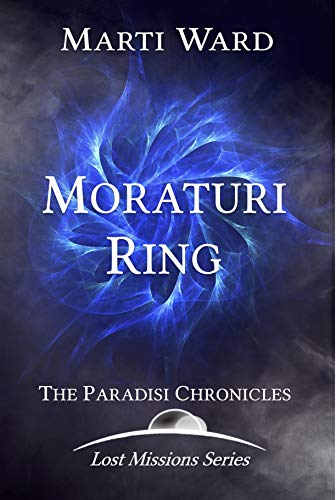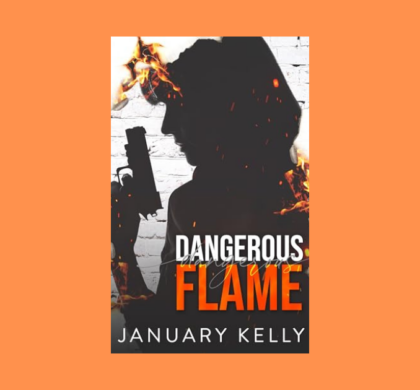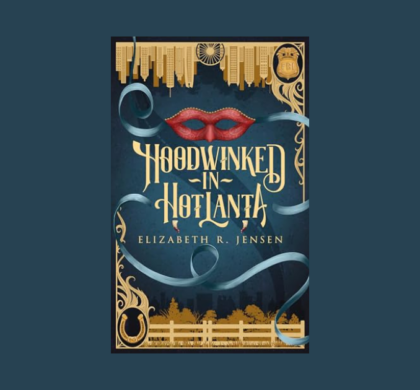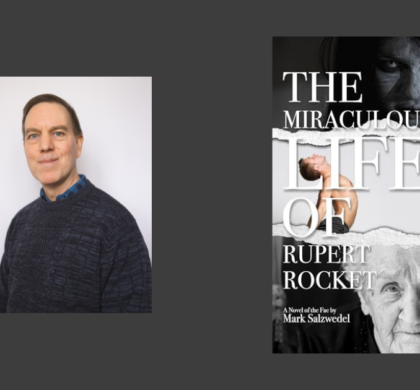Interview with Marti Ward, Author of Moraturi Ring: Paradisi Chronicles
05 Jan 2021
What can you tell us about your new release, Moraturi Ring: Paradisi Chronicles?
You’re sixteen about to turn seventeen. You and your twin brother are picked up early from school for a surprise birthday treat… and that’s the last thing you remember before you wake up on a spacecraft in a wormhole with no memory of how you got there.
The ship’s doctors don’t really understand your amnesia and aren’t helping, and whenever you wake you are at sea. Then one morning they are all gone – the crew are dead or incapacitated, except for a 20-year-old vet. The Quantum AI is also out of commission. You’ve been dropped out of the wormhole early, somewhere in the Andromeda galaxy.
You and your brother are interested in engineering, space and robotics – and now you’re as close to engineers and navigators as we’ve got. It is your job to figure out how to get the ship and its 500 cryopassengers across the lightyears to our destination. And your improbable plan has just been given the go…
What or who inspired you to become an author?
I’ve been reading since I was three, and writing SFF since I was six, published at seven. But it was not so much that I wanted to be an author, as that there were stories to tell, authors to emulate. In fact, my early Ghostie story was strongly influenced by Casper the Friendly Ghost and somewhat derivative; my Magic Sixpence story was influenced by fairy tales, Greek legends and Enid Blyton; Astroboy and 2001’s HAL were inspiration for my PhD research and Machine Learning of Natural Language book (and HAL gets a not-so-positive mention in Casindra Lost).
My father had a huge library including the Britannica Great Books and Encyclopaedia, the accumulating works of C.S. Lewis, Edgar Rice Burroughs, Capt. W.E. Johns, Earl Stanley Gardner, Agatha Christie and many others. He also wrote, but never published, science fiction stories that I really enjoyed. Once I’d finished his library, I read my school library and the public library – starting with the children’s section but then moving on to general fiction. Though it was really the science fiction that caught my attention and directed me towards science. But a good SF story still needs deep characters, some mystery and suspense, and a good dose of adventure.
What’s on your top 5 list for the best books you’ve ever read?
Asimov’s Caves of Steel and other robot stories would top the list – and the three laws of robotics are never far from my mind today as a roboticist and psychologist in the line of Susan Calvin.
Andre Norton also made an impression – and I just reread Time Traders which holds up perfectly today 60 years on. I fell in love with Anne McCaffrey and her dragons and their riders – Dragonriders of Pern – I’ve reread all of her dragon books recently as well as the more recent ones with and by her children. Marion Bradley Zimmer’s Darkover and Mercedes Lackey’s Valdemar series also showed me other people from the inside out.
These four women showed understanding of people, character, that their male counterparts lacked.
But that’s ancient history – I should mention some modern authors who, while not scientists, did the research to present serious science as the basis for serious fiction. I was really impressed with the Wake, Watch, Wonder trilogy of Robert J Sawyer.
Douglas Phillips and Douglas E Richards are also upcoming authors in this hard science fiction genre that I aspire to – although the science is not quite as true as it could be and should be and I try to make it.
And who says I can count? I have computers to do that for me…
Say you’re the host of a literary talk show. Who would be your first guest? What would you want to ask?
Robert J Sawyer – I’d start with the WWW series. How did he come up with the idea of connecting a story about a blind girl and a story about emerging artificial intelligence – what came first? What was the seed idea? How did he research this? How did he put himself in the minds of these two diverse characters?
I am an expert in the areas of neuroscience, biomedical engineering and artificial intelligence that form the background and drive for these stories – and Sawyer got the science exactly right… He also got the characters exactly right…
I recommend this trilogy to my students!
What’s your favorite thing about writing?
Once I understand the world I’ve built and the characters I’ve created and the general direction I’m headed, what I like is the way the characters and the plot take over – I’m living their lives, their situation, and I just write it the way they see it, feel it, experience it. The planning takes months… But once I get to the writing proper, the book writes itself in a matter of days…
What is a typical day like for you?
Typical? I don’t have enough days so boring as to be typical.
Most of my days involve teaching and mentoring students – and when dealing with people, nobody’s the same as anyone else, so it’s always interesting. My research and my writing also involve people, real and imagined, so they are also always different. I’m always working on multiple projects at once, my own personal projects as well as those involving students or teams of researchers. The science you see in my fiction books relates strongly to the science I’m working on: neuroscience, psycholinguistics, robotics, neural networks, forensics, health/medical interventions…
The hard thing is to find a day when I can concentrate on one thing. Casindra Lost and Moraturi Lost were written during holidays – mostly between Christmas and New Year; Moraturi Ring was drafted during three weeks training it around Europe on a Eurail pass. Much of my writing has been on trains and planes, and much of it in the quiet of the night once everyone else has gone to bed. Or sometimes an intense weekend, making sure I hit a deadline.
What scene from Moraturi Ring: Paradisi Chronicles was your favorite to write?
It’s a secret…
The problem is favorite scenes are the most thorough spoilers, the ones that turn your world upside-down, where everything goes wrong, where the unlikeliest of characters comes up with the unlikeliest of solutions, …
But there’s also the scenes full of emotion, the funeral, the standoff, … Although often it’s emotion that has to be suppressed, internalized…
If I had to pick one it’d be the one that shows you the problem with keeping secrets!
Do you have a motto, quote, or philosophy you live by?
“Don’t believe everything you’re told!”
Or in Karl Popper’s philosophy of science, “It is a scientist’s job to try to disprove their own theories.”
This is the basis for much of my science – doing what others say is impossible, proving that they’re wrong. And just because a character says something doesn’t make it true either.
It is also behind much of my fiction: poking at those areas where our scientific theories are at their weakest, at misguided academics battling to save their crumbling ivory towers; targeting penny-pushing bureaucrats who know nothing about anything – least of all “the bottom line”.
Marti Ward is the author of the new book Moraturi Ring: Paradisi Chronicles
Connect with Marti Ward
Author Site
Buy The Book
Sign up for our email and we’ll send you the best new books in your favorite genres weekly.



